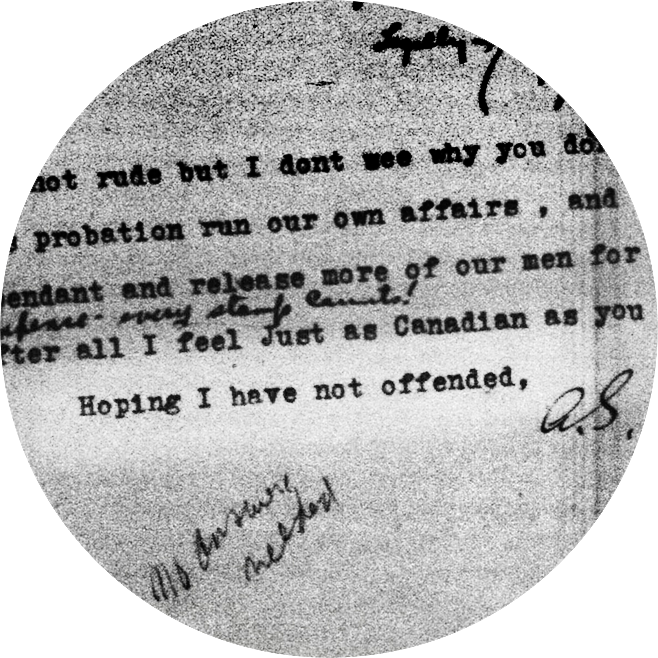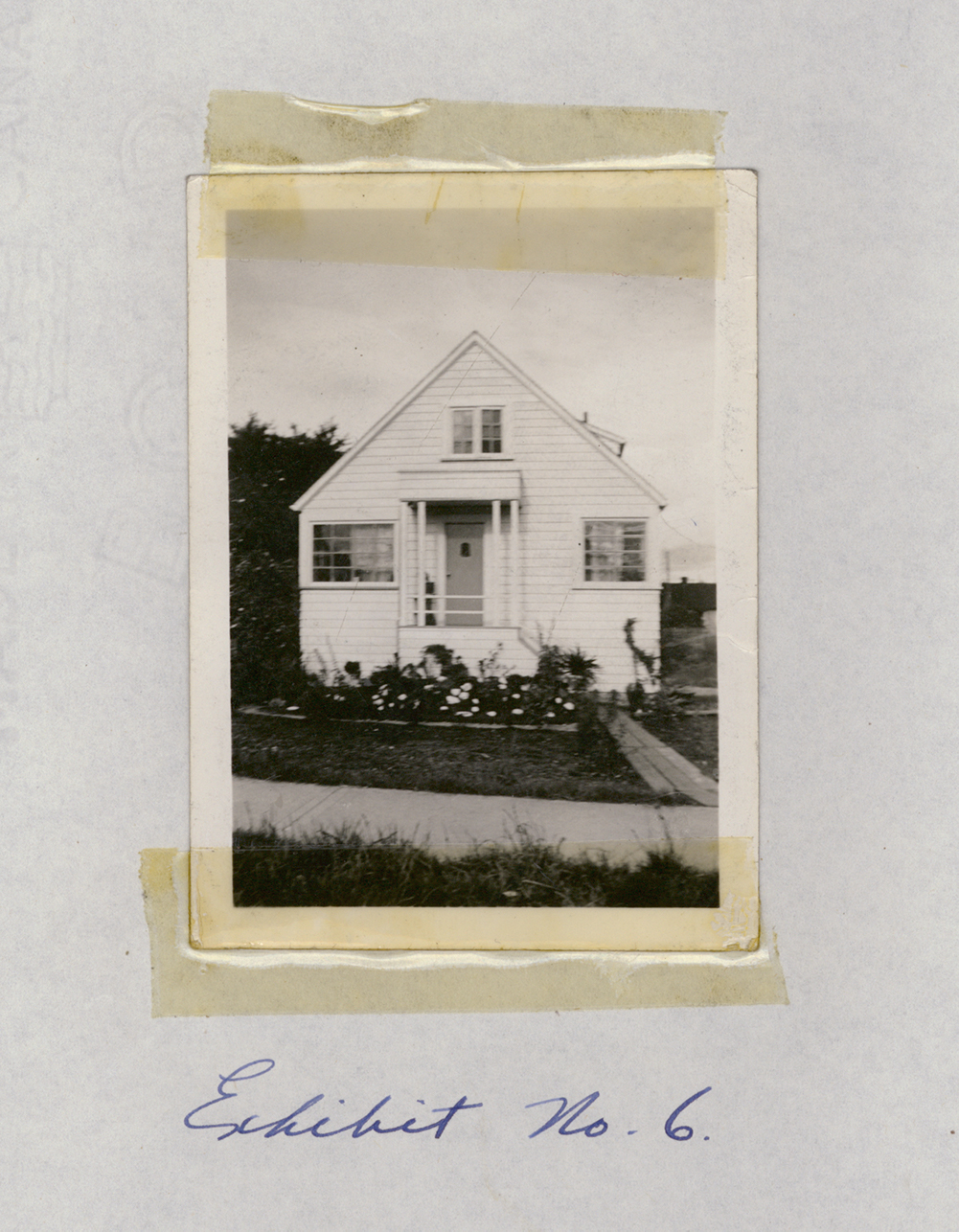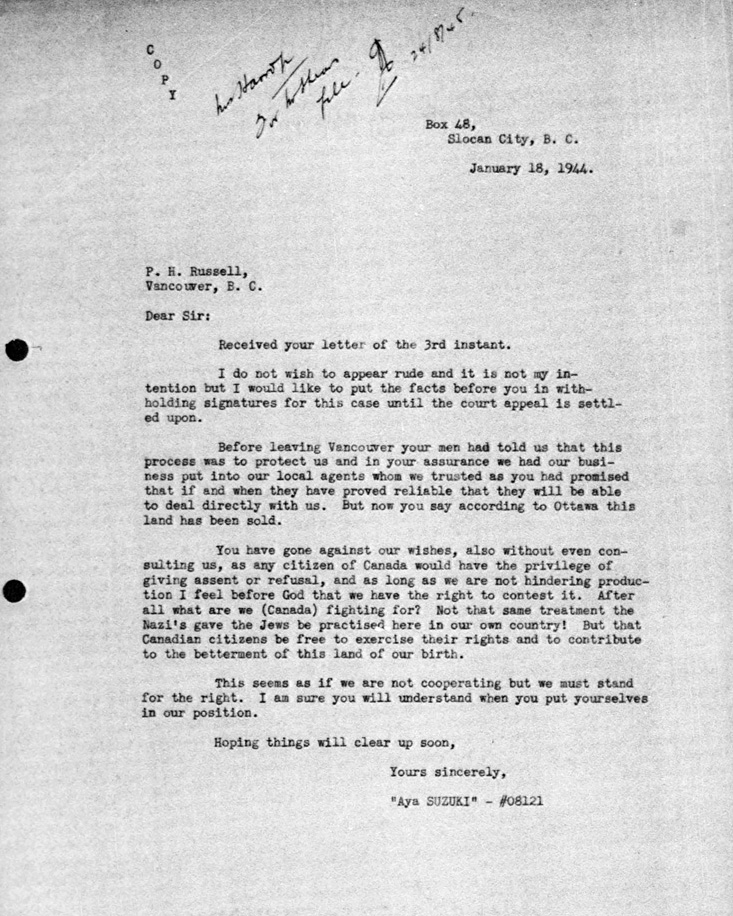Protest

Japanese Canadians never accepted official justifications for the sale of their property. They demanded that officials recognize the racism of their actions and consider the meaning of citizenship. From the outset, they gave voice to the injustice they suffered.
Few criticized the hypocrisy of Canadian policy more forcefully than Aya Suzuki. Uprooted from Vancouver, Suzuki wrote to officials in protest from her internment in Slocan City. She reminded them that at the time of her uprooting, “your men had told us” that the Custodian’s control of property “was to protect us … But now you say … this land has been sold?” The sales, she said, were in no way justified:
"You have gone against our wishes, also without even consulting us, as any citizen of Canada would have the privilege of giving assent or refusal … I feel before God that we have the right to contest it. After all what are we (Canada) fighting for? Not that same treatment the Nazis gave the Jews be practiced here in our own country! But that Canadian citizens be free to exercise their rights and to contribute to the betterment of this land of our birth."
The comparison shames policy makers by drawing Canada into association with Nazi Germany. But it also demands that they uphold the differences between the two. For Suzuki, Canada was not merely a racist state, even if her experience suggested that it was very much that. Citizenship still meant something in Canada, she argued, even if officials seemingly could not realize it.
 Library and Archives Canada, e011178678
Library and Archives Canada, e011178678
 Library and Archives Canada, RG117-C-3, reel C9476, image 1334
Library and Archives Canada, RG117-C-3, reel C9476, image 1334
